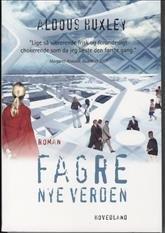Miya reseñó Brave New World de Aldous Huxley
O Brave New World that has such people in it!
5 estrellas
I really enjoyed reading this book, the style of writing is such a delight. For example when everything starts speeding up, different scenes intertwined with each other, but in a way that you can still keep up with what is happening where.
The philosophical discussion towards the end was especially interesting. I don't think that anyone could ever be happy like that (even if conditioned).
As Mark Deck (TheClick) put it so nicely: Happiness is a progress.
Happiness [isn't] achieved and everlasting. Happiness [...] requires constant investment. It's like the curve of how life is currently tilting [...], do I feel like things are going in the right direction, am I improving myself [...]? [...] when you achieve a goal you will just look towards the next goal after that. There's always a thing after, so it's more about the journey as a whole [...] rather …
I really enjoyed reading this book, the style of writing is such a delight. For example when everything starts speeding up, different scenes intertwined with each other, but in a way that you can still keep up with what is happening where.
The philosophical discussion towards the end was especially interesting. I don't think that anyone could ever be happy like that (even if conditioned).
As Mark Deck (TheClick) put it so nicely: Happiness is a progress.
Happiness [isn't] achieved and everlasting. Happiness [...] requires constant investment. It's like the curve of how life is currently tilting [...], do I feel like things are going in the right direction, am I improving myself [...]? [...] when you achieve a goal you will just look towards the next goal after that. There's always a thing after, so it's more about the journey as a whole [...] rather than the specific singular achievement.
Or as Mark Manson put it:
Happiness comes from solving problems. The keyword here is "solving." If you're avoiding your problems or feel like you don't have any problems, then you're going to make yourself miserable. [...] To be happy we need something to solve. Happiness is therefore a form of action; it's an activity.
The people in Brave New World don't have anything to solve, no ambitions, no passion... how could they ever be happy?


